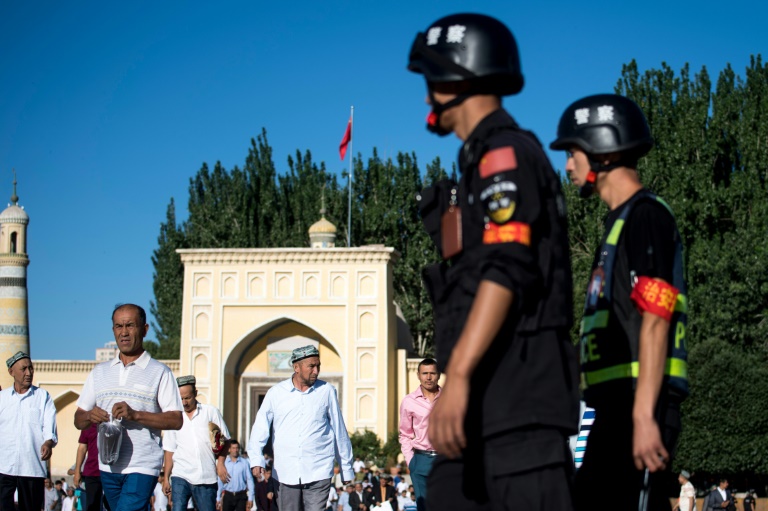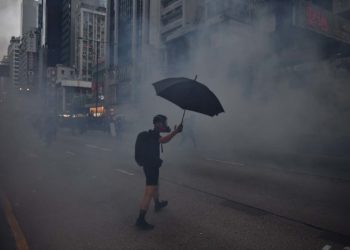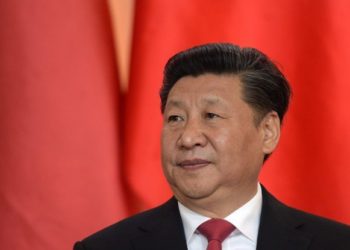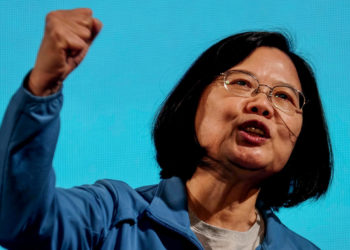The Kashmir conflict that once brought India and Pakistan to the brink of nuclear war was born with the partition of British India in 1947. In 2002, former U.S. President Bill Clinton described Kashmir as “the most dangerous place in the world.” But last year, an international player indicated its interest in resolving the long-term confrontation.
In May 2017, China’s state-run English daily Global Times claimed in an opinion piece that the country “has the capability to resolve conflicts through mediation given its increased economic influence.”
In the same article, it also mentioned China’s interest in possibly mediating between India and Pakistan over the Kashmir dispute.
But is China in a position to play a role of a mediator vis-à-vis Kashmir, given the massive investment that Beijing has made in neighboring countries along the One Belt, One Road (OBOR) development initiative and its ambitious economic project called the China-Pakistan Economic Corridor (CPEC)?
The CPEC, launched in 2015, is a planned network of roads, railways and energy projects linking China’s resource-rich Xinjiang with Islamabad’s strategic Gwadar Port on the Arabian Sea.
Beijing has invested nearly $60 billion in the CPEC that passes through Gilgit-Baltistan – a region which is a part of the erstwhile state of Jammu and Kashmir that existed until 1947 and a part of Pakistan-administered Kashmir after the Indian subcontinent.
The two nuclear arch-rivals Pakistan and India claim the disputed Himalayan region of Jammu and Kashmir in full, but administer it in parts since the partition.
Pakistan’s government – headed by legendary cricketer-turned-politician and Prime Minister Imran Khan – aims to amalgamate Gilgit-Baltistan, also known as Northern Areas, as the country’s fifth province after Punjab, Sindh, Khyber Pakhtunkhwa and Balochistan.
There is no denying that China wields strong influence in the Asia-Pacific region, and experts say officials in Beijing may not actually care much about India’s strategic concerns.
On November 6, China launched a luxury bus service between Pakistan’s famous city of Lahore in Punjab province and China’s Kashgar city in Xinjiang province which passes through Pakistan-administered Kashmir.
The children of Kashmir's decades-long conflict https://t.co/STdOy8mnmZ — in pictures pic.twitter.com/fApb6oXHIx
— Al Jazeera English (@AJEnglish) December 17, 2018
The move caused discomfort to New Delhi. India interpreted China’s Lahore-Kashgar bus service as a provocative move and officially objected to it.
Predictably then, India lodged its official protest with Pakistan and China against the bus service, describing it as a violation of “India’s sovereignty and territorial integrity.”
On its part, China defended the bus service while Pakistan strongly rejected India’s official protest.
“We reject the Indian Ministry of External Affairs’ (MEA) purported protest and statement regarding bus service through China-Pakistan Economic Corridor (CPEC),” Pakistan’s foreign office said.
The Chinese foreign ministry spokesman Lu Kang maintained that Beijing’s cooperation with Islamabad has “nothing to do with the territorial dispute and will not change the country’s principled stand on the Kashmir dispute.”
But does China have a “vested interest” in Kashmir?
Professor Siddiq Wahid, a historian and former vice-chancellor at Jammu and Kashmir’s Islamic University of Science and Technology (IUST), is of the view that “China’s presence in our Gilgit-Baltistan is of course connected to its China-Pakistan Economic Corridor (CPEC).”
“But Beijing is hardly going to worry about objections to such encroachment thanks to South Asian impotence – a political reality caused by the India-Pakistan sibling rivalry,” he told The Globe Post.
“Besides, CPEC is not a ‘corridor’ as much as it is a plain strategic ‘pipeline,’ an impression that was solidified during my recent trip to Xinjiang.”
During that visit, he said that it occurred to him that there is nothing “economic” about the CPEC.
“The aim is to both exploit Xinjiang’s natural wealth and secure the territory for the PRC, with no ‘economic’ benefit to peoples at either end of the pipeline or in between,” he said.
Ajai Shukla, a retired Indian Army Colonel and a current defense and strategic analyst, tends to concur with Wahid’s opinion.
The fact the CPEC passes through the disputed region of Jammu and Kashmir, Shukla argues, “is an irrelevance to China.”
“Beijing would probably prefer that it didn’t pass through [Jammu and Kashmir], which has resulted in India’s implacable opposition to the CPEC,” Shukla told The Globe Post.
“In the circumstances, however, China would not let that issue derail what is a major strategic project for obtaining access to the Arabian Sea. In itself, China has not immediate interest in involving itself in the Kashmir dispute.”
Dr. Shazana Andrabi, who teaches at the International Relations department at the IUST in south Kashmir, said that China would not want to antagonize either Pakistan or India.
“Beijing will not play a direct role in Kashmir. Indirectly though what can happen is that politics will be done through economics,” she told The Globe Post.
Until recently, Beijing was dispensing stapled visas to residents of Indian-controlled Jammu and Kashmir and Arunachal Pradesh. Officially, Beijing claims large swathes of these two regions as Chinese territory.
Unlike normal visas pasted on traveler’s passport, the stapled visas were being issued on a separate piece of paper.
In January 2011, a weightlifter and an official of Indian Weightlifting Federation from Arunachal Pradesh were denied permission to board their flight to China at New Delhi’s Indira Gandhi International Airport for carrying stapled visas issued to them by the Chinese Embassy.
At the time, then-Chinese Prime Minister Wen Jiabao said Beijing would weigh New Delhi’s concern over the issue of stapled visas.
Meanwhile, the possible move of Pakistan merging Gilgit-Baltistan as the country’s fifth province, Andrabi argues, will offer alibi to India to claim “Indian-administered Kashmir as its legitimate part.”
Journalists in Kashmir Are Oppressed by Security Forces and Government





















